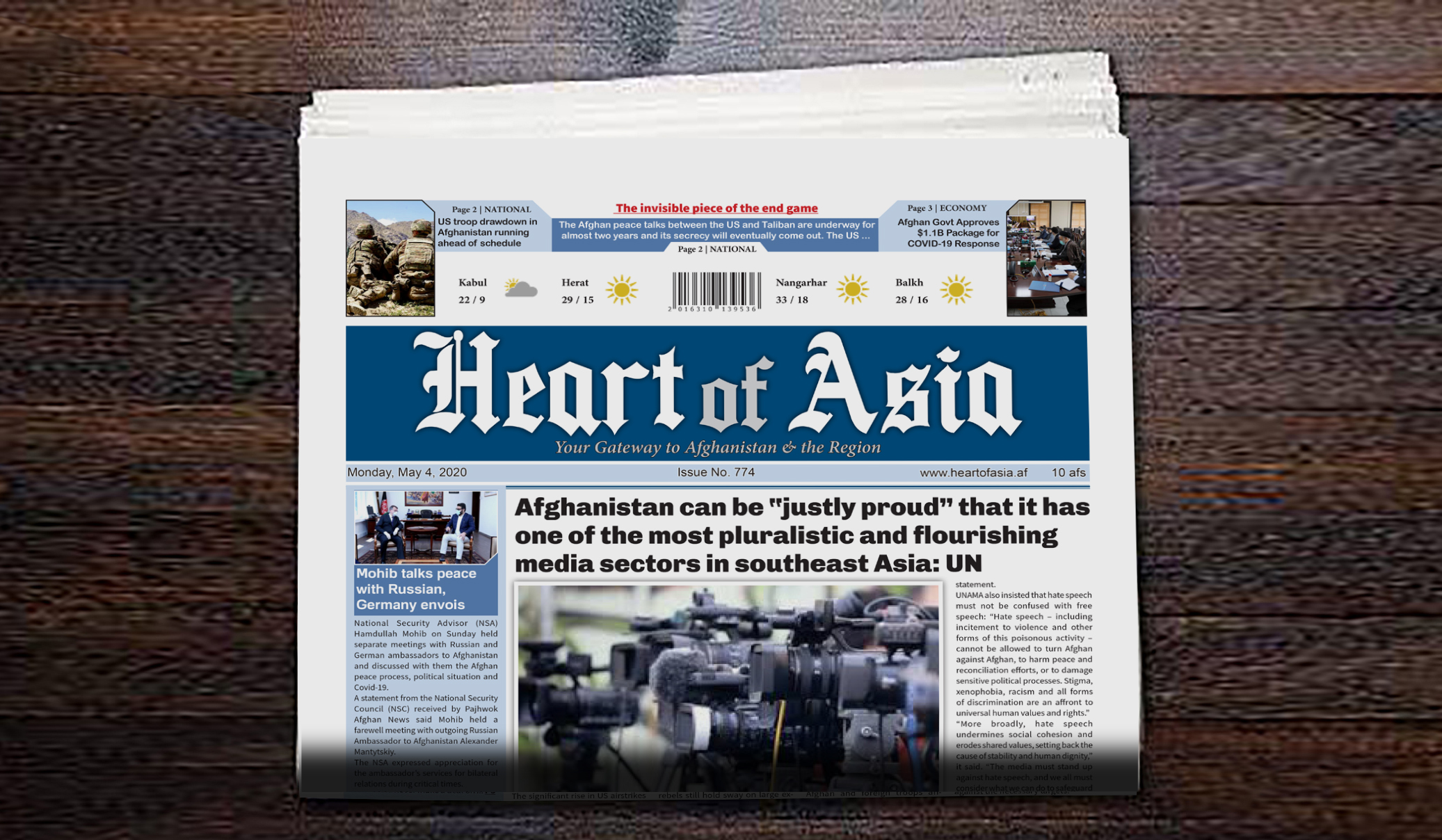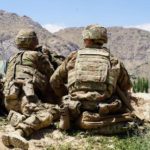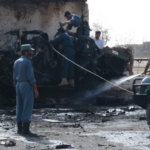The United Nations Assistance Mission in Afghanistan (UNAMA) in a statement released on Sunday for World Press Freedom Day said that “Nothing should be allowed to threaten the critical advances in press freedoms in Afghanistan”
“Is a time to reflect on the enormous value free media contributes to open and healthy societies, and how we all must play our part in defending press freedom,” it said.
Afghanistan can be “justly proud” that it has one of the most pluralistic and flourishing media sectors in southeast Asia, according to the statement, adding that “it is an achievement all the more striking given where press freedom stood in the country less than a generation ago.”
It also said that the UN remains firm in its position that media freedoms must be protected as part of any peace process.
“All parties in any peace negotiations must uphold all fundamental human rights, including the right to freedom of expression, which is enshrined in Article 19 of the Universal Declaration of Human Rights. Nothing should be allowed to threaten the critical advances in press freedoms in Afghanistan,” according to the statement.
UNAMA also insisted that hate speech must not be confused with free speech: “Hate speech – including incitement to violence and other forms of this poisonous activity – cannot be allowed to turn Afghan against Afghan, to harm peace and reconciliation efforts, or to damage sensitive political processes. Stigma, xenophobia, racism and all forms of discrimination are an affront to universal human values and rights.”
“More broadly, hate speech undermines social cohesion and erodes shared values, setting back the cause of stability and human dignity,” it said. “The media must stand up against hate speech, and we all must consider what we can do to safeguard journalists and to recognize our collective obligations to take practical steps to address those forces that menace the media, including in the context of the COVID-19 pandemic.”
Further, the statement said: “As COVID-19 threatens life in Afghanistan and around the world, the importance of the media providing accurate and fact-based information cannot be overstated. Harmful health advice has proliferated, with falsehoods filling the airwaves and conspiracy theories infecting the Internet. The United Nations is actively engaged in supporting independent media in Afghanistan.”
“Our human rights colleagues track crimes against media that are related to the armed conflict, and the UN family in Afghanistan promotes the protection of journalists and battling impunity to bring perpetrators to justice,” it said.
“The United Nations has a commitment to defend Afghanistan’s free press, and we will do all in our power to support free media so all journalists — Afghan media and foreign correspondents alike — can operate without fear of being harassed, intimidated or attacked, and so the media can operate safely in an environment where crimes against them will be addressed swiftly and effectively,” the report said.
In the meantime, the UK embassy in Kabul affirmed its commitment in this area, stating that last year the embassy implemented projects worth “around €300,000” to “support access to information, journalist safety and to support female journalists.













